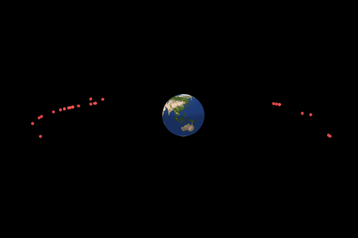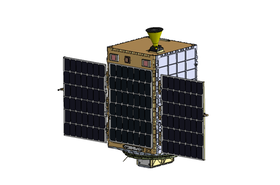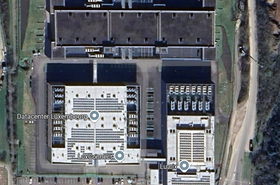A Eutelsat satellite over the Americas has ceased operations after an anomaly.
“Eutelsat Group confirms that following an anomaly on its Eutelsat 113 West A satellite which occurred on 31st January, it has ceased operations on the satellite,” the company said in an announcement over the weekend. “Mitigation actions are underway to minimize the disruption to customers impacted, including accelerated transfer to alternative capacity on our satellites located at the 115° and 117° West positions.”
Eutelsat spokesperson Joanna Darlington told SpaceNews it is too early in the diagnostic process to tell whether the company will be able to ultimately de-orbit the satellite.
Built by Space Systems Loral — now Maxar Technologies – and launched in 2006, Eutelsat 113 West A (ex-Satmex 6) provided C- and Ku-Band coverage over the Americas providing video, data, and Government services on 18 transponders.
The company said the satellite, which was approaching its end-of-life and already three years past its expected design life, is no longer part of the firm’s In Orbit Insurance policy.
“Before mitigation, the mechanical impact on revenues of the non-availability of the satellite is circa €3 million ($3.2m) in FY24 and €5-6m ($5.37-6.45m) per annum for the period FY25-28,” Eutelsat said.
The news follows Eutelsat’s admission that its OneWeb Low Earth Orbit (LEO) network is “running behind schedule” due to ground station delays.
“This reflects delays in the availability of the ground network, as well as a revenue mix more oriented than expected towards the sale of user terminals, which impacts margins,” the company said last week. “The delay in the ground network impacts revenues, especially in mobility and in certain geographies where market access is still outstanding.”
Eutelsat said the deployment of the ground network is “progressing well” and aiming for a 90 percent completion rate in Q2 2024, but is still forcing the company to adjust its yearly forecast down. Revenue ranges are expected to be around €1 billion ($1bn) lower and Adjusted EBITDA range is expected to be around €75 million ($80.6m) lower.
In a recent partnership announcement with Paratus, Eutelsat OneWeb said it has now activated its Satellite Network Portals (SNP) in South Africa and Mauritius, with additional ground station sites in Ghana and Angola online soon.
The company also announced a new ground station in Tabuk, Saudi Arabia. Built by local construction firm Albabtain LeBlanc in partnership with STC, the Satellite Network Portal (SNP) comprises 15 antennae.
In other satellite news:
- A Starlink engineer has said the company is delivering more than 42 petabytes of data for 2.3 million customers per day and has a peak throughput of more than 5.6 Tbps.
- Papua New Guinea state telco Telikom Limited has started offering Lynk Global’s direct-to-cell satellite service to subscribers.
- Swiss startup ClearSpace has announced plans for a new in-orbit refueling satellite station.
- Quindar has raised $6 million as an extension of its $2.5 million seed round to develop software to automate satellite constellation operations. Venture capital firm Fuse led the round with participation from existing investors Y Combinator and Founders Fund.
- Lufthansa has selected Viasat’s Inmarsat satellites to provide in-flight connectivity services to 150 aircraft across its own Lufthansa and subsidiary SWISS and Austrian Airlines fleets.
- Marlink has won the contract to deploy Starlink-powered services on the fleet of leading Japanese shipowner Fukujin Kisen Co Ltd.
- Thales Alenia Space is to develop an optical communication payload for Hellas Sat’s upcoming Sat 5 satellite.







